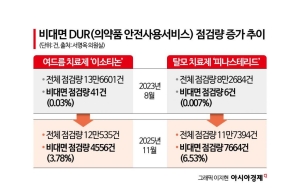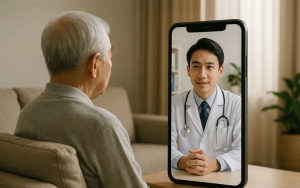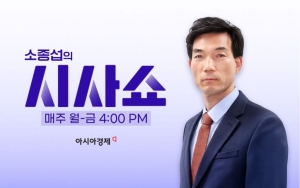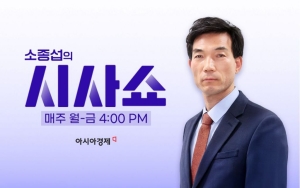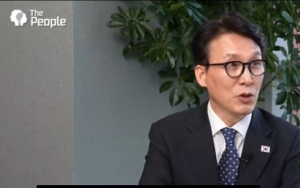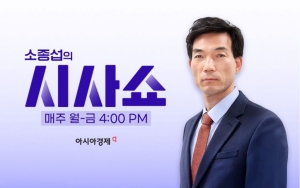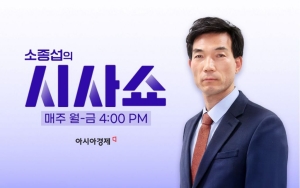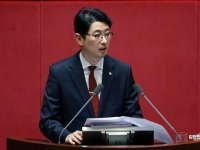10: You did a film adaptation of Ryu Murakami's novel "69" before and this time, you adapted Shuichi Yoshida's novel "Villain." Is there a certain principle you stick to or method you use in turning original novels into movies?
Lee: Method... I really wish I had one. (laugh) Of course, there is one thing I do take caution with. And that's to not tie myself down to the story of the novel. Novels are usually long and they contain various stories and plots so I'm sure there'll be ill effects in trying to compress everything into two hours. The most important thing is the characters. And to decide what to adopt or give up on based on what incidents you must tell about the major characters surrounding main character. I had never considered changing the original plot of a story to a completely different story because I had always wanted to produce a film adaptation of novels that I like. Instead, I think of the best way to depict on the relationships from the novel, whether they be of lovers or haters, in the shortest time yet most dramatic way possible. I think the appeal in films lies in the fact that you can show how two people, who hated each other so much in the beginning, came to be on good terms, in a very dynamic way through the various scenes you insert in between.
10: So it seems that you wanting to tell a story by showing it through a movie instead of leaving it to be read in a book means that you find meaning in that 'cinematic moment.' What's the 'cinematic moment' within "Villain" for you? Whatever it is that you think goes beyond the original work or is something that only you can show?
Lee: I had the desire to show the audience what Yuichi looks like. After wondering how people would see this man who has committed murder, I decided that the movie should both start and end with Yuichi's face. I wanted to see whether people would get the same feeling from Yuichi's face at the beginning and end of the movie.
10: Is there anything about the original novel that you were sure of wanting to bring out?
Lee: The scene where Yoishino meets with his dead daughter at her point of accident on a rainy day. It's the only scene with the element of fantasy in the novel that's actually full of realistic details. And if you ask me why I wanted to include that scene, all I can say is that it was instinct. But I wanted to use the most analogue method to shoot it... that I would not use computer graphics for it.
10: I noticed. I think that's why Yoshino, the only dead person in the movie, seemed like an actual person. (laugh) I think you also put a lot of work into the locations... your description of the Mitsuse Pass and the lighthouse were excellent.
Lee: It wasn't easy to find the locations and of them, the lighthouse was the most difficult. I've practically become a mania of lighthouses because I went to every lighthouse in the Kyushu area. (laugh) And I went to all the shorelines but I wasn't able to find one that I like. I also went to several islands thinking that maybe they're on islands if they're not on land. But the one I found was the lighthouse on an island that you see in hte movie. I think it probably has a different significance from the one in the original novel.
10: In what sense?
Lee: In the novel, this space where these two people hid wasn't far from where people live and was like a hideout from the police and people whereas in the movie, I had the lighthouse be a place where they are completely sealed off from the real world -- the Goto Islands composed of five islands in the Nagasaki Prefecture. They're islands on the most western point of Japan so the sunset they'd see would be the last in the country.
10: When you read novels, do you read them with the intention of turning them into films or are you just an extensive reader?
Lee: I used to be someone who just likes to read a lot but I think I've come to think of movies more while reading so I think it's an occupational disease.
10: I think you must've constantly asked yourself whether human beings are fundamentally good or bad while directing the movie. And that must've affected the order and way in which you portray the dead Yoshino, Matsuo who had the largest affect on her till her death and Yuichi who killed her.
Lee: Well if you ask me whether I always had such philosophical questions in my head, I'd have to say not always. But if I may say so, there are many times I vaguely thought of such things, throughout my life, when put in such circumstances. You asking me that question just now is an example of me being put in such a situation. And it made me think about it. I didn't know I'd be thinking philosophically while eating just three hours ago. (laugh) I think what we lack in is the awareness of what's good and bad, not whether human beings are fundamentally good or bad. All human beings probably think they're a good person.
10: How did you come to think that you want to make movies? I heard that you majored in economics in college but you wanted to make movies one day so you found your way to a production firm run by Korean Japanese Lee Bong-woo.
Lee: I hadn't been a movie fanatic since I was young. And I had liked to watch movies but never had I thought I'd become someone who makes them. I just had a vague idea of wanting to do something related to movies and since I had majored in economics, there was a time that I thought I should become a producer related to economics. (laugh) Anyway, I attended a film school in Japan after graduating college but it turned out that not everybody could be the director for their graduating projects which you produce upon completing their three-year program. If there are about 20 students per class, only one of them could. And I was thinking that I should make at least one movie since I'd paid a lot of movie for the past three years to attend the school so I wrote and directed "Chong" which ended up winning an award overseas as well. And that's how I've come to live as a director till now.
10: Is there a strength of yours that you would pick as a reason for you being suitable as a director?
Lee: That's I'm twisted? (laugh) And I'm stubborn.
10: So I'm guessing that you're probably called quite the villain by your crew then?
Lee: No. I do my best to treat them well to not be called that by them.
10: You've kept your Korean name which in a way, is different and stands out in Japan. Is there a reason for this?
Lee: Some people change their names to Japanese names for the sake of convenience but that means you'd be hiding something. I think I'd be much more stressed about living my life while hiding something than living by my Korean name so I've kept it.
지금 뜨는 뉴스
10: You're very interested in Korean movie stars as well, right?
Lee: Yes, I like Song Kang-ho a lot. Director Kim Jee-woon and Song visited Japan in the late 90s to promote "The Quiet Family." And I was a student at the time but I got to be their entourage because I spoke Korean. I ended up drinking with Song all night and he showed me his family photo as well... (laugh) I also remember driving all the way to Yokohama with my dad's car because director Kim said he wanted to see Yokohama. And I said hello to Song when he visited Japan the next time after that and he remembered me so I felt very honored. But it's been ten years since that happened now so I don't know whether he still remembers me.
10: Why don't you ask to meet with him before you leave?
Lee: Not yet... I'm not ready to. But I would like to shoot a movie with him before I die! (laugh)
※ Any copying, republication or redistribution of 10Asia's content is expressly prohibited without prior consent of 10Asia. Copyright infringement is subject to criminal and civil penalties.
Senior Reporter : Beck Una one@
Editor : Jessica Kim jesskim@, Lee Ji-Hye seven@
<ⓒ투자가를 위한 경제콘텐츠 플랫폼, 아시아경제(www.asiae.co.kr) 무단전재 배포금지>
![[INTERVIEW] Director Lee Sang-il - Part 2](https://cphoto.asiae.co.kr/listimglink/1/2011061314454283962_1.jpg)







![전문가 4인이 말하는 '의료 생태계의 대전환'[비대면진료의 미래⑥]](https://cwcontent.asiae.co.kr/asiaresize/319/2026013014211022823_1769750471.png)

